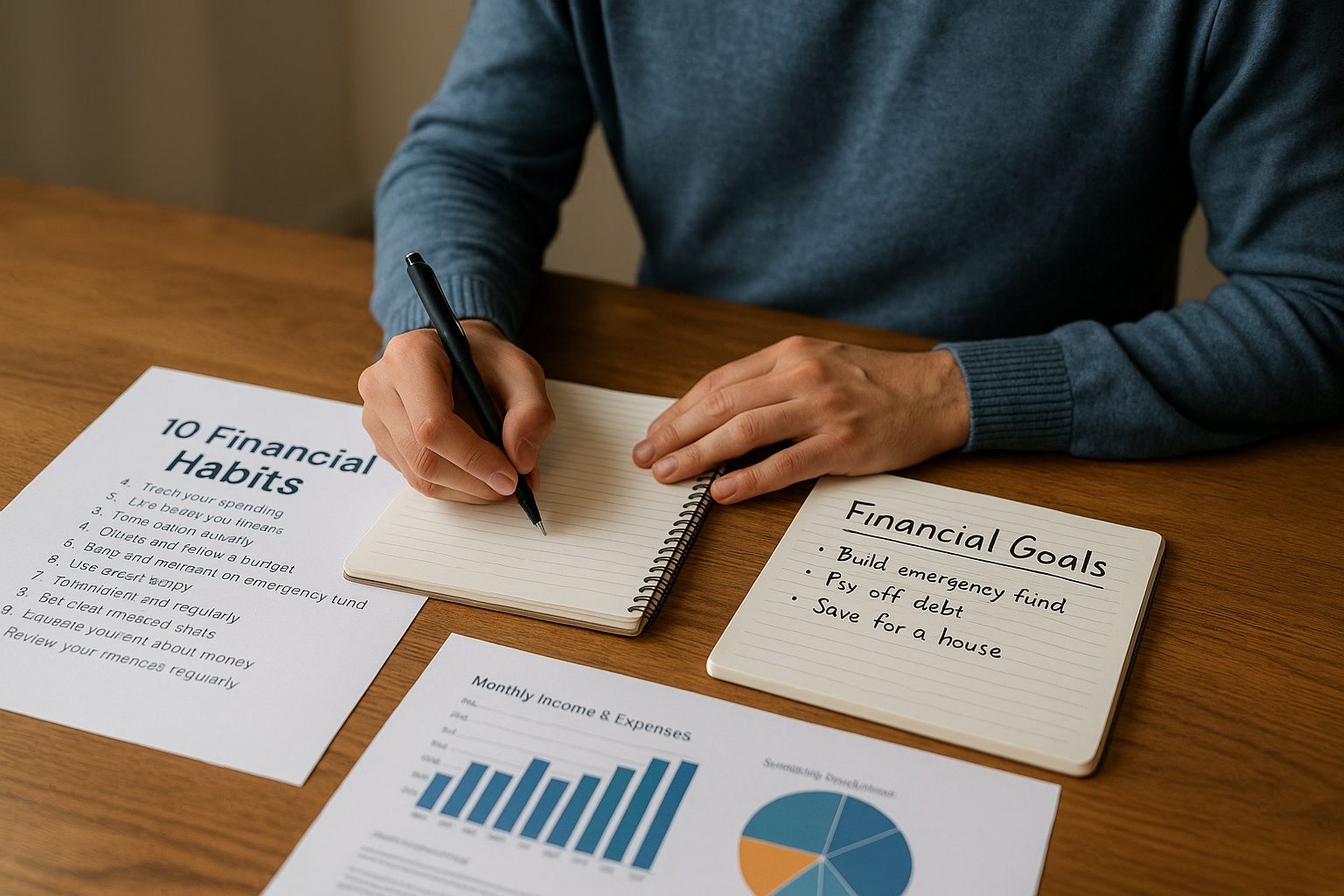Building healthy financial habits can be the difference between living paycheck to paycheck and achieving long-term financial security. Good habits provide structure, consistency, and peace of mind — and they don’t require you to be rich or a finance expert. Whether you’re just starting out or want to improve your money management, these 10 habits are essential.
1. Track Your Spending Consistently
One of the most powerful financial habits is tracking where your money goes. It might seem tedious at first, but once you understand your spending patterns, you can make smarter decisions.
Use an app or a spreadsheet to categorize your expenses: housing, food, transportation, entertainment, etc. After a month or two, you’ll see where you can cut back without sacrificing your lifestyle.
2. Live Below Your Means
Spending less than you earn is the foundation of financial stability. Many people fall into the trap of lifestyle inflation — the more they earn, the more they spend.
Living below your means doesn’t mean living miserably. It’s about prioritizing what really matters, avoiding unnecessary expenses, and keeping your future in mind.
3. Save Automatically
Paying yourself first is one of the golden rules of personal finance. Set up automatic transfers to your savings account every time you get paid — even if it’s a small amount.
Automated savings make it easier to build an emergency fund, save for goals, or invest consistently without the temptation to spend the money.
4. Create and Follow a Budget
A budget gives you control over your money. It doesn’t restrict you — it empowers you. Choose a budgeting method that works for your personality:
- 50/30/20 Rule
- Zero-Based Budgeting
- Envelope Method
Review and adjust your budget monthly. Your income and expenses can change, so your plan should be flexible too.
5. Build and Maintain an Emergency Fund
Unexpected expenses are part of life. Whether it’s a medical bill, car repair, or job loss, having an emergency fund helps you avoid using credit cards or loans.
Aim to save 3 to 6 months of living expenses in a separate, easy-to-access account. Start with $500 or $1,000 and build from there.
6. Use Credit Wisely
Credit isn’t inherently bad — it can help you build a credit score, earn rewards, and manage cash flow. The key is using it wisely:
- Pay your credit card balance in full every month.
- Avoid carrying debt with high interest.
- Keep your credit utilization below 30%.
Good credit can save you thousands on loans and insurance over time.
7. Invest Early and Regularly
The earlier you start investing, the more time your money has to grow through compound interest. Even small, regular contributions can lead to significant results.
You don’t need to be an expert — start with low-risk options like index funds or robo-advisors. If your job offers a retirement plan like a 401(k), contribute enough to get any employer match.
8. Set Clear Financial Goals
Without goals, it’s hard to stay motivated. Define what you’re working toward:
- A new car?
- A home down payment?
- Becoming debt-free?
- Retiring early?
Break each goal into smaller, measurable steps and track your progress. Celebrating small wins keeps you engaged and focused.
9. Educate Yourself About Money
Financial literacy is a lifelong journey. Take time to read books, watch videos, or listen to podcasts about personal finance. Some beginner-friendly resources include:
- “The Total Money Makeover” by Dave Ramsey
- “I Will Teach You to Be Rich” by Ramit Sethi
- “Your Money or Your Life” by Vicki Robin
The more you learn, the more confident you’ll feel making financial decisions.
10. Review Your Finances Regularly
Set a recurring “money date” with yourself — weekly or monthly — to review:
- Income and expenses
- Savings and investments
- Financial goals
This habit helps you stay on track, spot issues early, and make informed adjustments. It also builds confidence in your financial journey.
Final Thoughts: Small Habits, Big Results
You don’t need to overhaul your life overnight. Start with one or two habits from this list and build from there. The impact of consistent effort over time is massive. By developing strong financial habits, you’re laying the groundwork for a more secure, stress-free, and fulfilling future.
